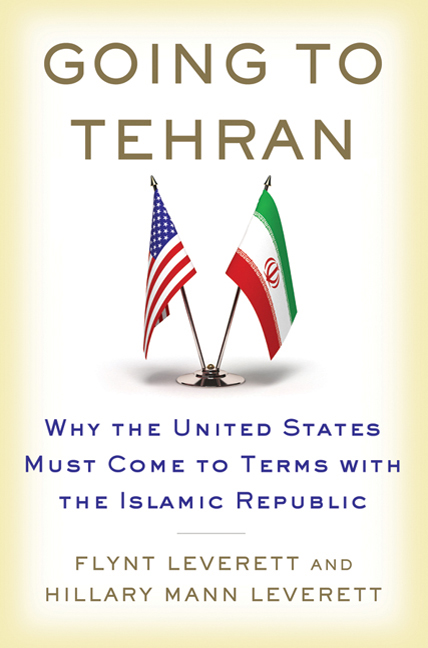 The most annoying adage of American diplomacy is surely “Only Nixon could go to China,” as it credits the 37th president with solving a problem that he did more than anyone to create during his tricky career of redbaiting, fearmongering and saber-rattling.
The most annoying adage of American diplomacy is surely “Only Nixon could go to China,” as it credits the 37th president with solving a problem that he did more than anyone to create during his tricky career of redbaiting, fearmongering and saber-rattling.
U.S. diplomatic recognition of the People’s Republic of China should have been a no-brainer for all sorts of reasons, chief among them national self-interest.
Yet rapprochement with the PRC took 24 years, during which American China experts who dissented from the national groupthink were ignored, smeared or given pink slips.
Flynt Leverett and Hillary Mann Leverett are the intellectual descendants of those China hands, but their focus is The Islamic Republic of Iran. In their new book, the Leveretts (who have between them worked in the National Security Council, the CIA and the State Department) make an ironclad case that President Barack Obama not only can, but must, “go to Iran” to establish normal diplomatic relations.
Jimmy Carter’s plan to turn the Persian Gulf into a militarized American bathtub has been a bust. After two Gulf wars and rising naval tension, the much-mouthed goal of “regional stability” will continue to elude us until there is rapprochement with Iran.
Going to Tehran is a reasoned, methodical critique of the ideological folklore that prevents Washington from setting up normal diplomatic relations with Tehran. For instance, the myth that mullahs want nukes to wipe out Israel—only in turn to be wiped out by Israeli nukes. (The notion of Iran as an irrational “suicide nation” has been repudiated by almost all senior Israeli security officials, including the current minister of defense, but Washington clings to it.)
Other myths include the claim, contrary to nearly all polling data, that Iran’s 2009 elections were “stolen” from liberal reformers by the socially conservative incumbent; and the dream that an Iran led by these liberal reformers would be a Persian version of Canada—subservient to Washington, eager to drop its nuclear program (which, according to our own CIA, is purely civilian).
Because the Leveretts fail to condemn the illiberal nature of Iranian social and political life, high-minded blowhards such as Jeffrey Goldberg have wasted no time in tarring them as apologists for the Islamic Republic. But domestic repression in other countries has never stopped Washington from establishing diplomatic ties.
Take our close regional partner Saudi Arabia, a neomedieval kingdom that in terms of personal freedoms makes Iran look like the West Village. Or Egypt, recipient of $60 billion in foreign aid over the past 30 years, until very recently an authoritarian torture regime without real elections.
And then, of course, Israel, our most expensive client state, gobbling up Palestinian land and water in an occupation that violates international law and defies U.S. foreign policy positions. Whence the squeamishness about talking with Tehran?
Of course the Leveretts’ real sin isn’t defending the Islamic Republic but holding U.S. policy elites—in government, media, academia, and think tanks—to account in intimate detail for making such a volatile hash out of our Iran statecraft.
The book is scrupulously sourced and the Leveretts make ample use of the Wikileaks files to argue, convincingly, that Obama’s early vaunted overtures to Tehran were empty gestures intended only as a prelude to severe economic sanctions, a policy that jibes well with our own tribal politics but will never bring about the pro-American regime change that remains the goal of official Washington.
Just as Nixon’s opening to China helped Washington achieve numerous mutually beneficial objectives in East Asia, only rapprochement with Tehran can bring stability to the Persian Gulf, to its critical oil flows and for that matter to Iran’s chaotic eastern neighbor, Afghanistan.
The year is young but Going to Tehran is likely the most important book on U.S. foreign policy in 2013.
Chase Madar is the author of The Passion of Bradley Manning: The Story Behind the Wikileaks Suspect (OR Books) and an attorney in New York.






0 Comments